Hi All,
In my last article, I interviewed Alyssa Menold, about critique partnerships and how to nurture them. Alyssa recently had some new work released since the interview, which I will share below. Congrats Alyssa!
When I was in art school, I became distressed by the long list of supplies I’d get every semester. Some of the tools I invested in, I never use again or I learned I preferred a different brand than my teacher. While art school is a great time to experiment, experimentation can be costly.
With the cost of art supplies and traveling to conventions it’s easy to forget starting an illustration business is a relativity cheap business to begin. You don’t need much space or fancy insurance. In simple terms, all you need in your toolbox is whatever it takes to make your work and get that work to the client.
Heavy Machinery
I know when I graduated, the big ticket items I enjoyed using at my art school facility were no longer available after school. The price tag continues to be a hurdle for graduates and was for me. Timing when to buy is important – let’s talk heavy machinery!
Do I need a scanner?
When I graduated I found a 2-year, zero-interest loan on a large bed Epson scanner that works great (to this day.) At the beginning of my career, I worked mostly digitally with my Wacom pen, so while I have gotten my use in the last 10 years, I’m running it more today than I did 10 years ago.
A camera, with lights can cost less than a large bed scanner. Scanning and photographing artwork both require know-how of editing programs of your choice – like adobe. Setting up your work to photograph requires more know how in my opinion, but has the potential to be less expensive. Either way, Muddy Colors has you covered with this info!
The kind of artwork you make may determine your needs for you. If you are a digital artist, you may be able to get away with not having a scanner at all. Alternatively, you may find a reliable local shop that offers a scanning service that may be able to get you started.
Do I need a printer?
Only a year ago or so I bought a large format Epson to use for my project, A Horse Named Sky. I have intended to print my sketches at different sizes – and it’s doing just that. Working now in analog, I like to print my sketches very lightly on Bristol mixed media paper and apply medium on top. (You can read more about that here)
The printer saves me time and an achy back. To enlarge a drawing previously, I’d have to scale it up or down with my projector (another costly tool) and trace bent over a table. Some artists find this part of the process relaxing, I find it makes my drawing look stiff and takes too long. When it comes to printing a line drawing on mixed-media paper. The Epson works just like I hoped. Learn more about this process here
For some artists who want to print their own prints and commodify their work in-house, buying a printer may be a reasonable investment to get right away. Even still, I’d argue many shops (brick-and-mortar and online) have great prints and a surprisingly good turnaround.
I don’t make prints to sell but I have found it’s great for last-minute promos or making a one-off print for a special event. Recently, I made some bookplates for A Horse Named Sky. It’s convenient to print them on demand. Thank-you cards and other goodies for clients are another perk.
Other uses for Printers:
Under a fast deadline, I was desperate for a fresh eye on a piece. I did all the tricks, the mirror, the cell phone camera, etc (all the ways artists try to get their mistakes to pop out) but I couldn’t figure out what was off.
I printed out a small version of my work in color and b&w. It’s nice to see it printed out – I can bring it in different rooms and mistakes seem to break loose. It helps me anticipate how it might look when my client is going to print it. I mark up “to-do” lists on the paper. Usually, I print them on some drawing paper/Canson….or whatever I have hanging around.
The initial price of printers isn’t the worst of the costs when it comes to printers and why I held off for so long. I’m talking about ink. When I got my printer and loaded the ink for the first time, I realized the ink that came with the printer aren’t full cartridges. They were about a 1/4 full. I had to laugh or else I would have cried in that moment. Include ink in your planning!
Computer
Ideally, I think illustrators will find themselves most comfortable on a desktop computer. Having a machine that can handle your files is crucial. Battling an overheating computer is a right of passage for any new illustrator but a computer would be the number one big investment I think illustrators should make. Some people may make the argument that an iPad can take the place of a computer and for some that might work. I work with very large book files and I feel at this time, my files cannot be properly prepped for my clients on an iPad.
If you are not ready to take the leap yet on some heavy machinery for your illustration business don’t forget to consider your local resources, I was shocked when I found out a library not far from me has Cintiq for checkout. Professional illustrators who are reading this, consider training your mentees with your tools and extending their use to up-and-comers in your local city.
Emergency Illustrator Kit
No matter how prepared you are for a gig, things happen. Snowstorms blow out power, and hard drives crash and burn. Paintings catch on fire. We’ve all been there. Here are a couple of ideas.
Back-up for your computer: I love using carbonite service for backing up my files. Whatever technique you use to back up your files, use and update it often.
Extra Wacom Pens: Even analog artists use Wacom pens to prepare their work for print. I’m known for walking around the house with mine in my hand. When you leave it in the fridge and can’t find it this will save you from driving to the next state!
Eager to get your studio up and running? What big purchase are you waiting to buy?




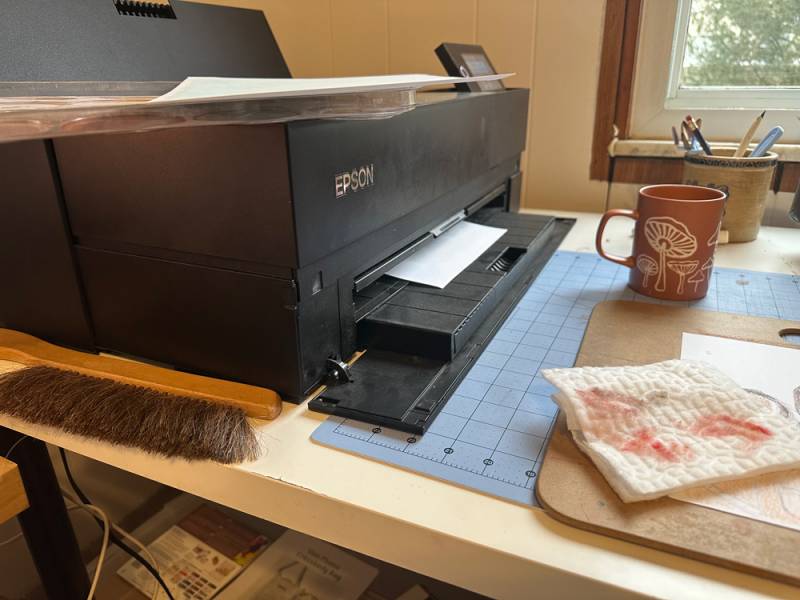

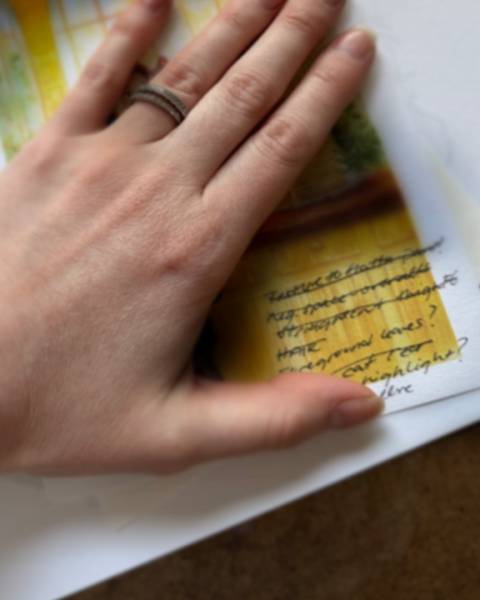
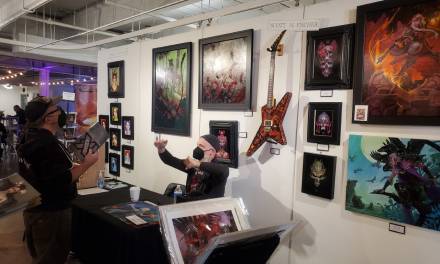
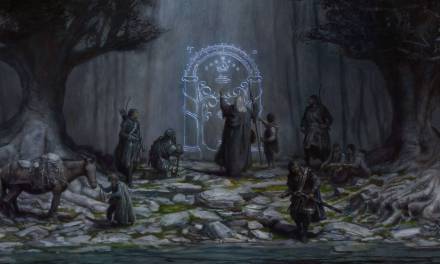
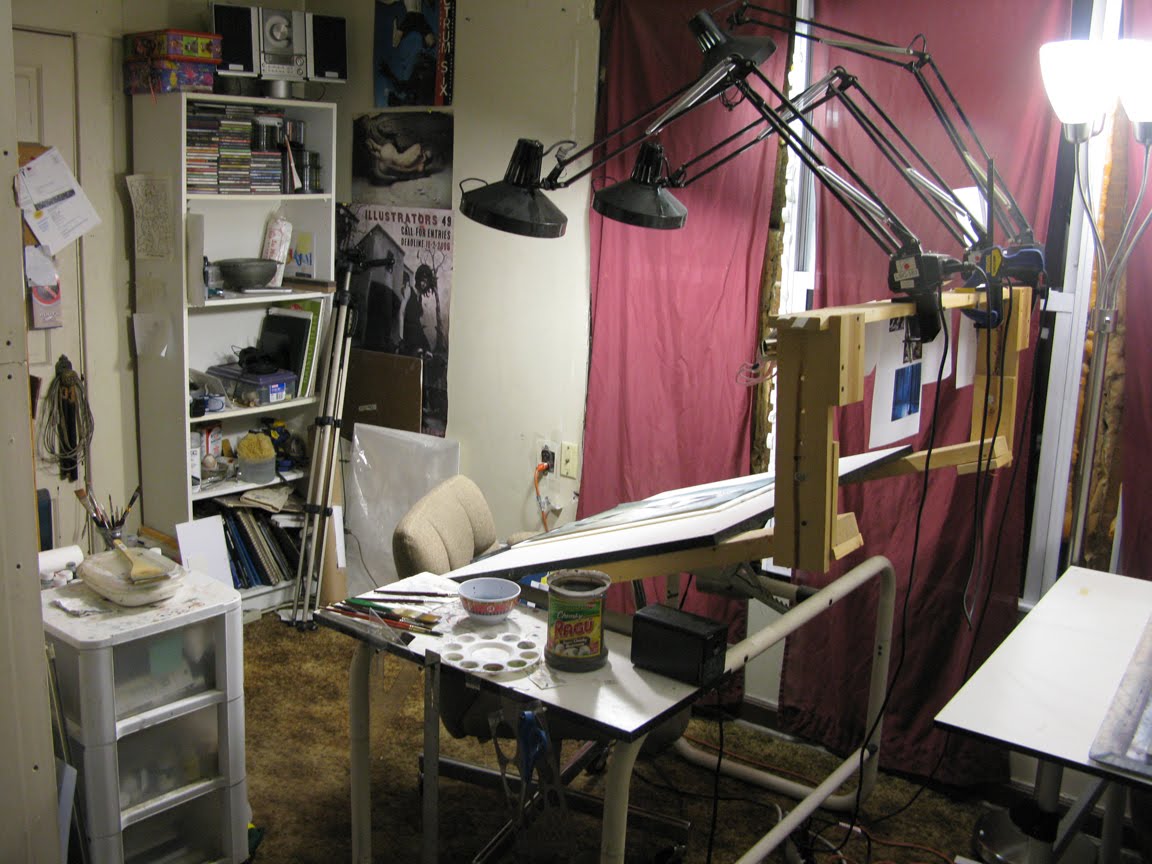

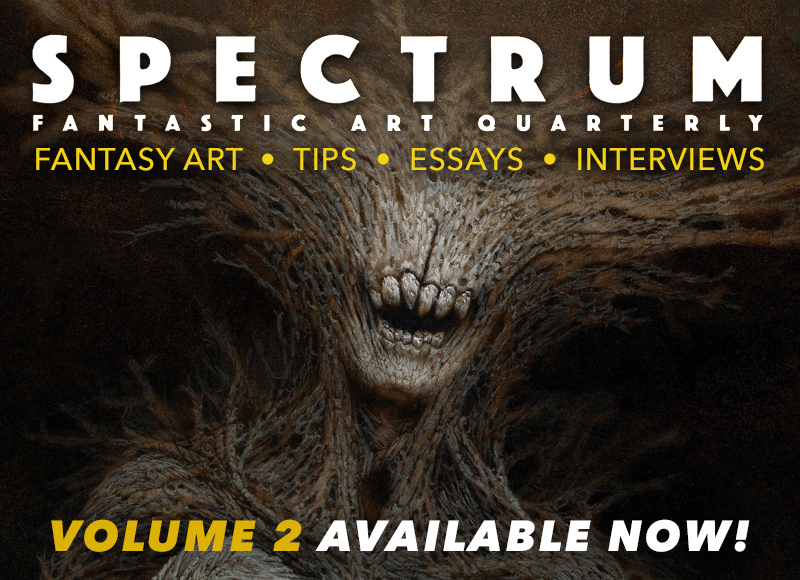
Great post Kirbi! I find myself missing the giant flatbed scanners and four foot wide printers they had at the University pretty frequently. I am about to cross this equipment bridge myself and have some decisions to make for at home printing and scanning. This was a nice reminder to put down the brushes and get back to looking at some of the business stuff.
Ugh…
Good luck with your search. A good scanner will last a long time!
I’d love to own a larger scanner at some point, and I’m obsessed with somehow finding a flat file cabinet that doesn’t cost me an arm and a leg! Why are these things so hard to find?!
Flat files! That’s another good piece of heavy machinery! Good luck.
Thank you for such an amazing article! I read it with a lot of pleasure.